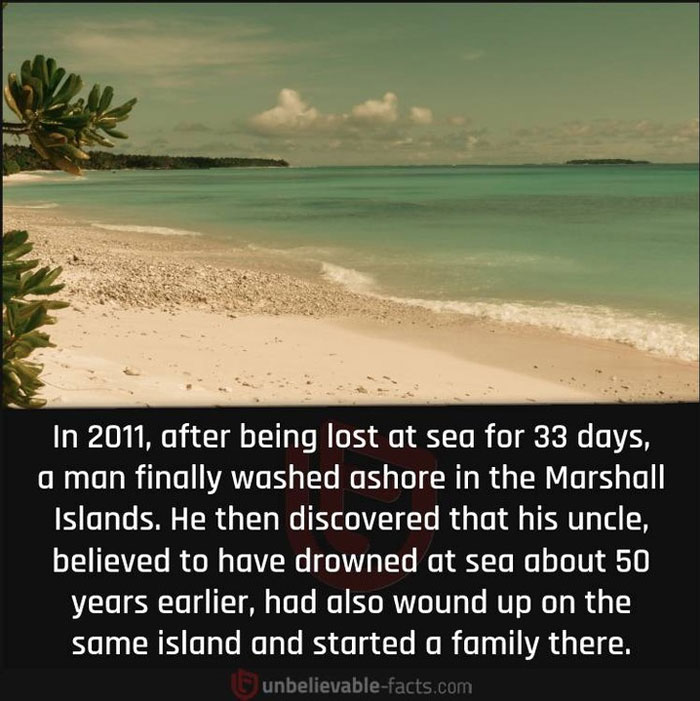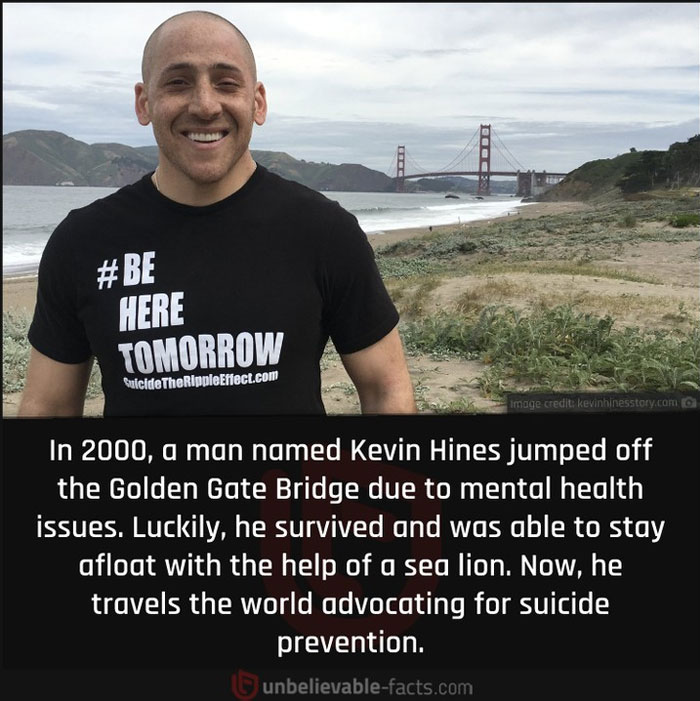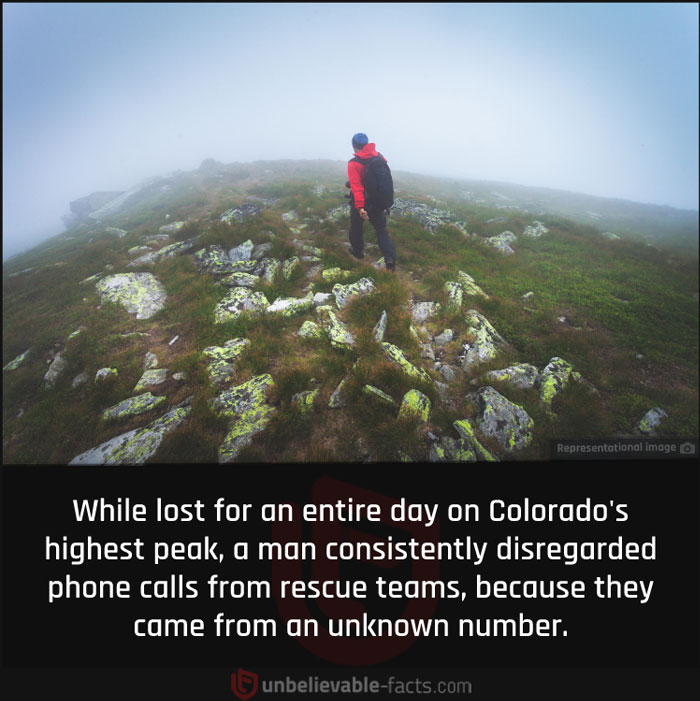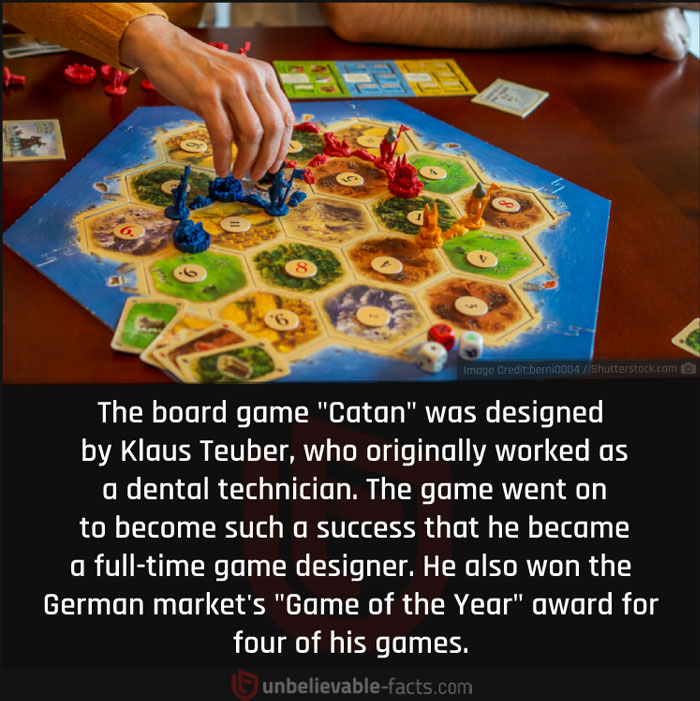
50 Intriguingly ‘Unbelievable Facts’ Perfect For Those Who Want To Test Their Knowledge Or Learn Something New
InterviewThey say truth is stranger than fiction, and I can imagine that the team behind Unbelievable Facts would echo that sentiment. This Facebook page, which is dedicated to sharing “the best bizarre, strange and extraordinary stories,” has amassed 8.8 million followers by posting information that you might be skeptical of at first glance.
We’ve gathered some of their most fascinating, eyebrow-raising posts down below, so enjoy reading through this list and learning something new. Keep reading to also find conversations with the creator of Unbelievable Facts, Gourav Gola, and fellow fun fact expert Luke Ward, and remember to upvote all of the facts that you just can’t believe are true!
More info: UnbelievableFacts.com | Twitter | Instagram | YouTube
This post may include affiliate links.
To learn more about how Unbelievable Facts came to be, we reached out to Gourav Gola, the founder of the website, who was kind enough to have a chat with Bored Panda. “My inspiration to start this page came from my passion for learning new things and sharing that knowledge with others,” Gourav said, noting that the full story of how the site began can be found right here. “Witnessing the growth and popularity of the page has been an incredible and humbling experience, and I'm excited to see where it goes from here.”
And when it comes to what he loves most about sharing these facts, Gourav says, “[It’s] that both my audience and I get to learn something new every day. This constant exchange of knowledge fosters a sense of community and mutual growth, making it a win-win for everyone involved.”
We also asked the creator of Unbelievable Facts if he has any favorite fun facts he’s ever shared, and he noted that this one stands out as one of his favorites: “In 2011, after being lost at sea for 33 days, a man finally washed ashore in the Marshall Islands. He then discovered that his uncle, believed to have drowned at sea about 50 years earlier, had also wound up on the same island and started a family there.” UF recently published an article on this amazing story that you can find right here.
Gourav also shared that UF has a dedicated team that conducts thorough research to ensure the accuracy and relevance of the information they share. “While we primarily rely on our team's efforts, we're always open to engaging with our followers and considering their submissions,” he added.
Oh my gosh that’s so sad, my heart aaaaaaa I wanna pat them on the back and give them a hug and say it’s ok but I can’t aaaaa
When it comes to why we should all be learning new fun facts all the time, Gourav says, “In today's world of social media, where content is often biased and divided along ideological lines, unbiased facts offer a refreshing and thought-provoking alternative. Learning new fun facts encourages critical thinking, stimulates intellectual curiosity, and provides a means of connection that transcends polarizing perspectives.”
Finally, the creator of Unbelievable Facts shared, “I'd like to thank all of my followers for their support and engagement, as well as the Bored Panda team for featuring our page. I hope that our content continues to inspire curiosity and learning, and I look forward to sharing even more unbelievable facts in the future.”
If you haven’t already, be sure to check out the Unbelievable Facts website right here!
To hear more about why we should all be lifelong learners, we also reached out to fun fact expert and owner of The Fact Site, Luke Ward. First, we wanted to know what inspired Luke to start a site dedicated to facts. “I’ve always loved hearing and sharing random facts, and back in 2008, I was researching fun facts to tell during Christmas dinner, but there weren't really any websites devoted to facts,” he explained. “It was before the days of Facebook pages, and I decided to create The Fact Site so others wouldn’t have to struggle finding fun facts to share.”
We were also curious about what the best parts of running The Fact Site are for Luke. “What I love the most about sharing fun facts is that it’s endless!” he shared. “After 14 years of sharing facts, I’m continuously learning things I never thought I’d need to know, and I love it!”
When it comes to how Luke decides what to share on the site, he told Bored Panda, “The topics I usually share come from anything that I find fascinating, or something that I have no knowledge of, because chances are, if I think it’s interesting, others will too!”
“My favorite facts to learn are usually to do with the animal kingdom or space,” Luke added. “For example, did you know that when Uranus was discovered, it was called George for about 70 years, named after King George III?”
Luke also shared that he has new favorite fun facts on a daily basis. “Researching new facts is not just my job, but my lifelong hobby,” he explained. “However, the fact that I’m currently obsessed with is that dragonflies are the most successful hunters on Earth. They catch 95% of their prey!”
And if you need to be convinced why we should all be learning fun facts, the fact expert says, “[They’re] great conversation starters, they can spark debate, make people feel more knowledgeable & they’re just… Well, fun! And let’s face it, who doesn’t love a fun fact?”
“I built The Fact Site to be a go-to source for fun facts for everyone to enjoy,” Luke went on to share. “Our small but mighty team does our own research, writing, fact-checking and are all fact-enthusiasts who aim to provide the most reliable, unbiased and interesting facts that you’ll never get bored of. Fun facts have been a huge part of my life, and without them, people would never know how weird and wonderful our universe truly is.”
If you’re interested in learning some fun facts about learning itself, Alicia Beharry wrote a piece for Skyprep detailing some of the most interesting things science has taught us about how we learn, one of which being that our emotions actually play a part in how well we learn. Research has shown that how we’re feeling has a substantial influence on our cognitive processes, particularly how well we can pay attention. So if you’re actually trying to learn something, it’s important to be in a good head space!
YEEEEEEEWEE THEYRE SO CUTE AND THEYRE NO LONGER EXTINCT THERE WOOOOO
Some good news is that social interaction can actually be beneficial when it comes to learning. While some of us prefer to be in silent rooms all by ourselves when studying, research has found that it can also be helpful to learn information through social cues such as remembering words that someone else has said or emulating their actions. This is why you might prefer having an actual teacher or professor in front of you over staring at a screen and simply watching a video.
And while we may assume that flooding our brains with as much information as possible is the best way to retain something, this method doesn’t always pan out the way we’d like it to. Once we hit a point of “cognitive overload”, we can’t actually learn at all. So to avoid feeling overwhelmed, we can utilize quantitative or qualitative learning methods. Quantitative learning involves providing smaller amounts of new information and allowing learners to understand most of what they have already been presented before introducing more information. And qualitative learning entails mixing up presentation methods to keep learners from becoming overwhelmed or fatigued.
That’s amazing it is like a guardian angel or the whispers of their loved ones calling for them to come home leading them back, THATS SICK
Scientists have also found that making mistakes is not only perfectly fine when learning, it’s actually essential. It can be difficult to resist the urge to try to be perfect all the time, but this mindset can be damaging when attempting to learn something new. We can’t be scared to fall off of our bicycles or too embarrassed to practice that foreign language we’ve been trying to learn with native speakers. Research has found that students are much more successful in their learning and performance when they are assured that failure is normal and to be expected. When we put too much pressure on ourselves, we actually inhibit our learning. But when we relax and understand that it’s not the end of the world to make mistakes, we do much better.
We’ve all been told that “practice makes perfect” when working on acquiring a new skill, but sometimes, too much practice, or at least too much of the same practice, loses its impact. Our brains crave novelty, and when we are presented with new ideas and experiences, they release dopamine. These feel good hormones are exactly what we need to gain motivation to learn and retain information, and once we actually do learn something new, we get to experience a nice, fuzzy rewarding feeling. So don’t be scared to mix up exactly how you like to learn!
We hope this list has taught you something new, pandas. Perhaps you even have the perfect conversation starter for the next time you run into a colleague at the coffee machine or when your partner asks you, “How was your day, honey?” Keep upvoting the information you find particularly unbelievable, and feel free to share even more shocking facts in the comments below. Then, if you’re in the mood to learn even more new information, we’ve got another Bored Panda article featuring fascinating facts right here!
Amazing history everywhere. Not all good. Yet there under our feet everyday.
Probably why helping others for no reason is one of very few things that make me feel human.
I'll get downvoted to oblivion, but here it goes: what kind of lives will this "kids" have once their family can't/are no longer willing to be their caregivers?
You see, this schools got style. And a weird powder substance created by the science teacher
That is so cool. I hope he got it back from the studio. I wonder how it got there?
I’ve always wondered about the cameras keeping up with chase scenes, thank you!
I usually used the excuse that ice cream ends up taking up less space in my stomach because it melts
Very probably hydrocephalus. It was certainly treated to get this result.
I feel that’s pretty crappy parenting you don’t have to leave the whole fortune to him but you should leave him enough to be comfortable and set out on his own. He’s used to a certain lifestyle don’t be in a hole just to prove a point I’m disappointed in Jackie Chan right now.
I don’t do that in a grave, all I need is to lie in bed and stare at the ceiling those thoughts come to me naturally
Okay that's actually sad. I'm sorry that some people feel the urge to chase beauty standards that get rid of their ethnic features. Asian eyes are beautiful, non-white skins are beautiful.
Bothers me that they used the word "imperfections." Unnecessary, unless that guy calls them such.
I still have yet to watch more than a few minutes of an episode......
The writer based the screenplay off her own experiences in the Catskills as a teenager!
I wonder how long he lived. He possibly landed on his mattress but house pieces maybe fell on him. Imagine being at the bottom of a deep dark hole on your mattress wondering if help is coming. Imagine his family having to rebuild the home knowing their son will forever be lost under them. Or he fell to an underground reservoir that led him to ocean waters and was found with a family 50 years later on the marshall islands
Sounds counterintuitive, but if BP tells me to eat pizza, guess I gotta eat some pizza…
To save you a Google search: the plane took off on a 9,000-mile flight from Dubai to Auckland. Turned back halfway there because Auckland Airport was closed due to severe flooding.

 Dark Mode
Dark Mode 

 No fees, cancel anytime
No fees, cancel anytime 






































































































































































